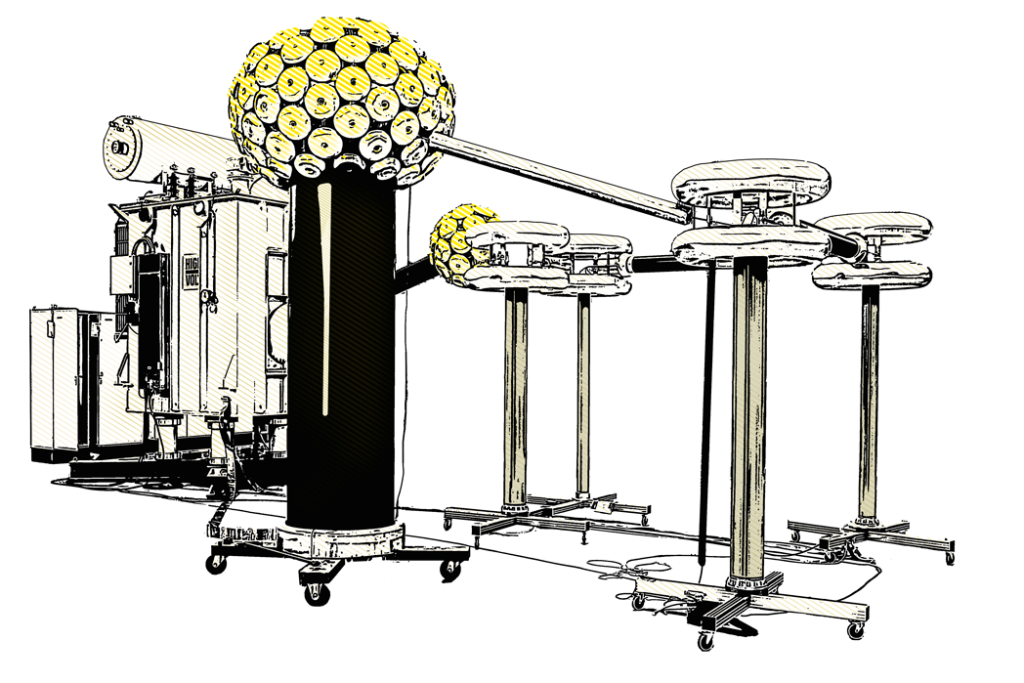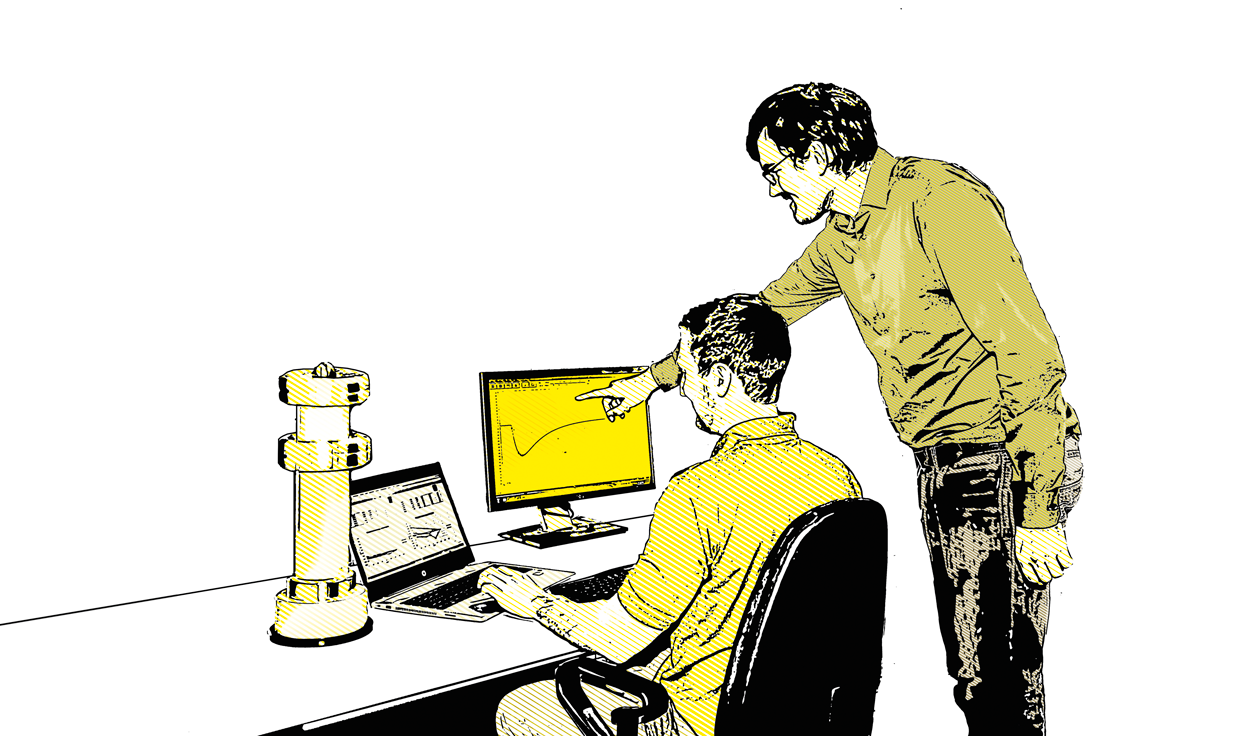The HIGHVOLT calibration lab in Dresden offers customers an all-inclusive package for high-voltage components.
In high-voltage systems, measurement instruments and systems ensure controlled, safe operation. That makes it all the more critical that they reliably deliver correct information. For example, if a measuring device indicates 1 megavolt (MV) when 1.2 MV is actually present, this can have costly consequences — components may be destroyed by excessive voltage or the power supply may even be disrupted.
“We offer a large portfolio for calibrating systems for high voltage and high current.”Marco Schäfer, HIGHVOLT
Since inaccuracies sneak into even the best measurement technology over time, the global IEC standard specifies that regular recalibrations are required. But not everyone is permitted to perform these. Only accredited labs are allowed to perform traceable recalibration services in accordance with the IEC standard.

The HIGHVOLT calibration lab has been accredited since 1999. It is headed by Marco Schäfer, who works with his team to ensure that customers all over the world can rely on their measurements. “We offer a large portfolio for calibrating systems for high voltage and high current,” he says. “Here, AC voltage, DC voltage and impulse voltage are used.” The lab is equipped with special equipment for this purpose that supplies the reference values.
Calibration labservices
- System calibration of high-voltage and high-current measurement systems
- Calibration of high-voltage components, such as compressed gas capacitors
- Calibration of capacitance bridges
- Control measurements of measurement systems and instruments (performance check)
It is not only measuring devices and measurement systems produced in-house that are calibrated on the HIGHVOLT premises, but also those of other manufacturers, since all calibration labs must function independently. The duration of calibrations varies widely. “De pending on the nominal voltage of the calibration object, a calibration can take a few hours, or even a few days,” explains Schäfer.
Globally Active
While HIGHVOLT engineers do perform service in Dresden, many calibrations actually take place right on the customer’s premises because calibration objects are often too large and heavy to make transport costeffective, and downtimes should be kept as low as possible. If customers are located in Europe, experts travel to them in a van. For customers who are farther away, such as in Japan, a reference system is sent. Due to the coronavirus pandemic, the calibration experts had to halt their travel somewhat, but the demand for the service remains high. “We actually still have full order books.”
YOUR CONTACT

Would you like to book calibration service?
Marco Schäfer would be glad to answer your questions:
calibration@highvolt.com
